I NEED to start with a disclaimer: I have a dog in the race I am about to bet on. I am a board member of Africa Check, the fact-checking operation that runs from our journalism department at Wits University.
Africa Check promotes slow journalism: before your rush into print or on air, take a deep breath and make sure you have double-checked your facts. If you don’t, there are a bunch of pedants who will be onto you, investigating where you sourced any facts and whether they stand up to scrutiny, and publishing it all on a website. They do the same for public figures: check out party manifestoes in elections, President Jacob Zuma’s state of the nation address and Western Cape Premier Helen Zille’s provincial one.
They are scrupulously nonpartisan, pointing out when the details are correct as often as when they are wrong. They took on the New York Times and showed that their source for a claim that there were 5-million illegal immigrants in SA was dubious, at best.
Sometimes they even have fun, checking out April Fools claims, or whether Joburg is in fact "the biggest man-made forest in the world". (It isn’t.) We all make mistakes, particularly at the kind of speed news travels at these days. Smart people apologise and fix it quickly (though the New York Times, famous for once correcting a misspelt name in a theatre review 60 years after the error, didn’t).
Some publications and broadcasters are making use of Africa Check to train their journalists in fact-checking, introducing new accuracy protocols, and willingly subjecting themselves to scrutiny. We are all aware that when you tackle powerful people in the media, it is often some small, unexpected error that trips you up and allows them to challenge your credibility. (A piece on a well-known commentary website on Wednesday that mocked spelling errors in political party statements had two glaring editing mistakes.)
Some commentators point to the number of corrections in our newspapers to show that these publications don’t care about accuracy. It is just the opposite — the corrections are there because they care; it is when there are no corrections that you know there is carelessness.
Factual mistakes can mess up our decision-making, they can hurt and even kill. Spread the myth that inoculations may cause autism and you spread disease; get wrong the cause of a drought, and you encourage the wrong responses; say someone has weapons of mass destruction when they don’t and there could be war.
When journalist Ray Hartley this week used aerial photographs to check the claims that 50,000 Economic Freedom Fighters members recently marched on the JSE and found it to be closer to 5,000, he was taking on the perennial problem journalists have with crowd estimation. His fact-checking didn’t lessen the significance of the event, but it did cut through the hysteria of much of the coverage.
That is why I was so surprised when the South African Institute of Race Relations, a body that built its name on the rigour of its research, said it would no longer co-operate with Africa Check. CEO Frans Cronjé launched a bizarre attack that seemed to suggest it was part of a socialist conspiracy to incite conflict in our society. He was rushing to the defence of Leon Louw of the Free Market Foundation, who would or could not provide the sources for a range of claims he had made on these pages. Why should he, Cronje asked, as if there were no responsibility on those who enter the public arena to strive for accuracy.
So, I have a challenge, to this newspaper and other publishers. If you are committed to the Press Code’s rules on accuracy and the value of self-regulation, should you publish the views of those who do not willingly subject themselves to fact-checking? Are you not undermining a fundamental journalistic value? Or have I got the facts wrong? It is always possible. Even likely.
• Harber is Caxton professor of journalism at Wits University
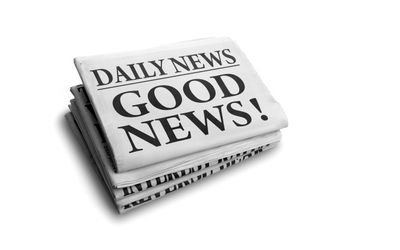
Picture: THINKSTOCK
I NEED to start with a disclaimer: I have a dog in the race I am about to bet on. I am a board member of Africa Check, the fact-checking operation that runs from our journalism department at Wits University.
Africa Check promotes slow journalism: before your rush into print or on air, take a deep breath and make sure you have double-checked your facts. If you don’t, there are a bunch of pedants who will be onto you, investigating where you sourced any facts and whether they stand up to scrutiny, and publishing it all on a website. They do the same for public figures: check out party manifestoes in elections, President Jacob Zuma’s state of the nation address and Western Cape Premier Helen Zille’s provincial one.
They are scrupulously nonpartisan, pointing out when the details are correct as often as when they are wrong. They took on the New York Times and showed that their source for a claim that there were 5-million illegal immigrants in SA was dubious, at best.
Sometimes they even have fun, checking out April Fools claims, or whether Joburg is in fact "the biggest man-made forest in the world". (It isn’t.) We all make mistakes, particularly at the kind of speed news travels at these days. Smart people apologise and fix it quickly (though the New York Times, famous for once correcting a misspelt name in a theatre review 60 years after the error, didn’t).
Some publications and broadcasters are making use of Africa Check to train their journalists in fact-checking, introducing new accuracy protocols, and willingly subjecting themselves to scrutiny. We are all aware that when you tackle powerful people in the media, it is often some small, unexpected error that trips you up and allows them to challenge your credibility. (A piece on a well-known commentary website on Wednesday that mocked spelling errors in political party statements had two glaring editing mistakes.)
Some commentators point to the number of corrections in our newspapers to show that these publications don’t care about accuracy. It is just the opposite — the corrections are there because they care; it is when there are no corrections that you know there is carelessness.
Factual mistakes can mess up our decision-making, they can hurt and even kill. Spread the myth that inoculations may cause autism and you spread disease; get wrong the cause of a drought, and you encourage the wrong responses; say someone has weapons of mass destruction when they don’t and there could be war.
When journalist Ray Hartley this week used aerial photographs to check the claims that 50,000 Economic Freedom Fighters members recently marched on the JSE and found it to be closer to 5,000, he was taking on the perennial problem journalists have with crowd estimation. His fact-checking didn’t lessen the significance of the event, but it did cut through the hysteria of much of the coverage.
That is why I was so surprised when the South African Institute of Race Relations, a body that built its name on the rigour of its research, said it would no longer co-operate with Africa Check. CEO Frans Cronjé launched a bizarre attack that seemed to suggest it was part of a socialist conspiracy to incite conflict in our society. He was rushing to the defence of Leon Louw of the Free Market Foundation, who would or could not provide the sources for a range of claims he had made on these pages. Why should he, Cronje asked, as if there were no responsibility on those who enter the public arena to strive for accuracy.
So, I have a challenge, to this newspaper and other publishers. If you are committed to the Press Code’s rules on accuracy and the value of self-regulation, should you publish the views of those who do not willingly subject themselves to fact-checking? Are you not undermining a fundamental journalistic value? Or have I got the facts wrong? It is always possible. Even likely.
• Harber is Caxton professor of journalism at Wits University




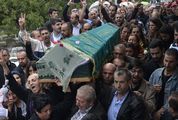
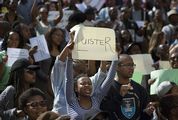
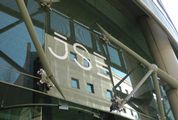




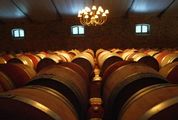
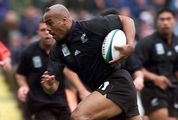









Change: -0.09%
Change: -0.09%
Change: -0.36%
Change: 0.49%
Change: -3.31%
Data supplied by Profile Data
Change: -0.46%
Change: 0.02%
Change: -0.09%
Change: 0.00%
Change: 0.13%
Data supplied by Profile Data
Change: 0.80%
Change: 0.51%
Change: 0.87%
Change: 1.51%
Change: -0.10%
Data supplied by Profile Data
Change: -0.94%
Change: -0.90%
Change: -0.71%
Change: -4.18%
Change: 1.68%
Data supplied by Profile Data